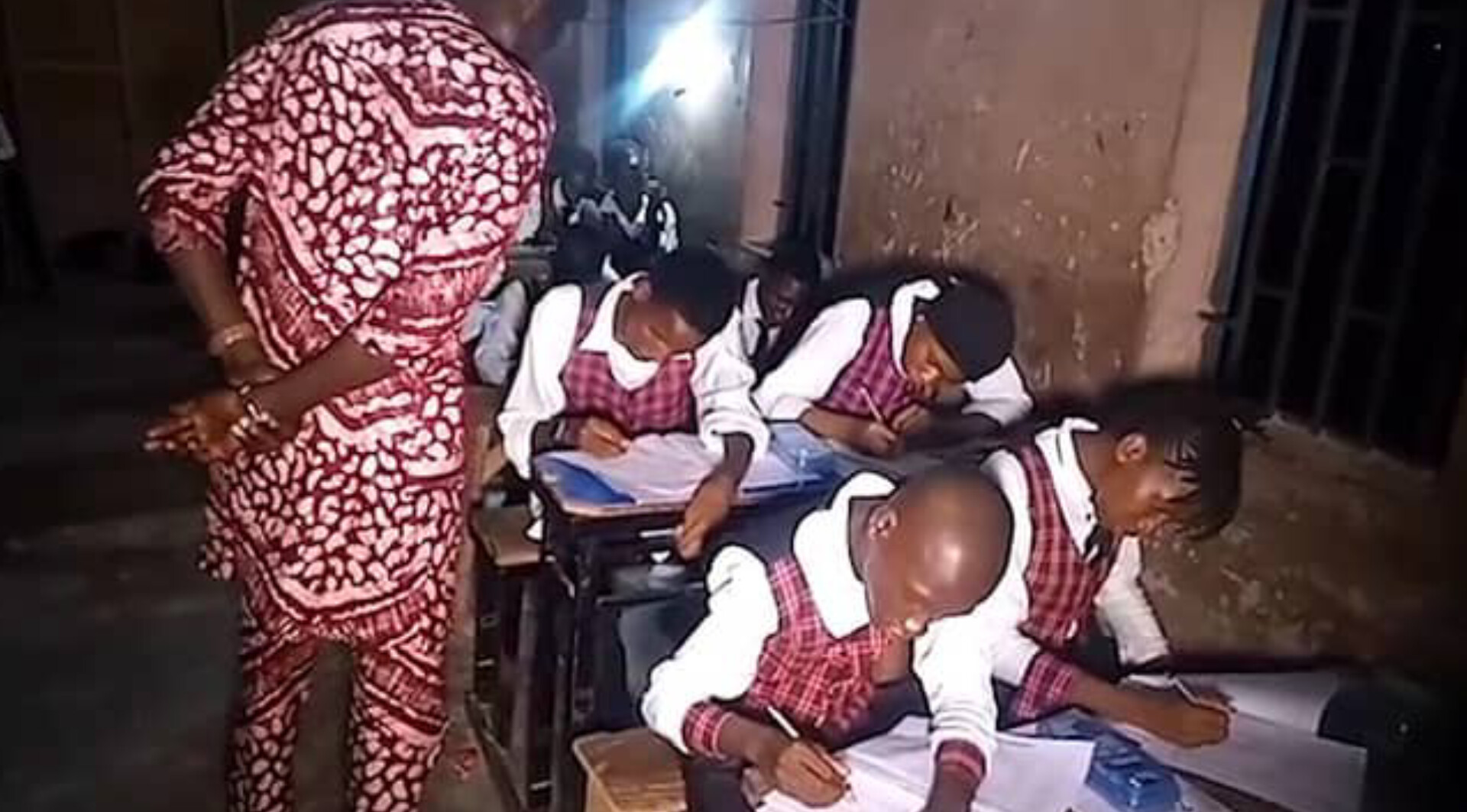The West African Examinations Council (WAEC) has officially apologised for the unusual late-night conduct of the West African Senior School Certificate Examination (WASSCE) in parts of Nigeria on Wednesday, citing urgent security concerns and unforeseen logistical challenges.
The Head of Nigeria’s National Office of WAEC, Mr. Amos Dangut, addressed the incident during an interview on Channels Television’s The Morning Brief on Thursday. Dangut explained that the examination body received credible intelligence that one of the exam papers scheduled for Wednesday was at risk of being leaked. To protect the integrity of the examination, WAEC was forced to implement immediate measures, which disrupted the examination timetable.
Viral social media footage had earlier shown students in Taraba State in Nigeria’s North-East and Ogun State in the South-West sitting for WASSCE papers at night, sparking nationwide concern and criticism from education stakeholders and parents.
“We got information that a particular paper was about to be compromised, so we had to move swiftly to safeguard the process,” Dangut said. “Unfortunately, in doing so, some other logistical problems surfaced. A vehicle conveying exam materials to Taraba broke down during the night, which delayed distribution and forced the examination to hold much later than scheduled.”
WAEC deeply regrets the incident, the examination official stated, assuring Nigerians that comprehensive measures have been put in place to ensure such a situation does not repeat itself.
“We have gone back to the drawing board and taken steps to address these logistical vulnerabilities. The integrity of our examination is paramount, and while we succeeded in preventing a leak, we are committed to improving our processes to avoid any recurrence,” Dangut added.
The incident underscores ongoing challenges in Nigeria’s public examination system, particularly around security threats and infrastructural limitations in remote areas.




